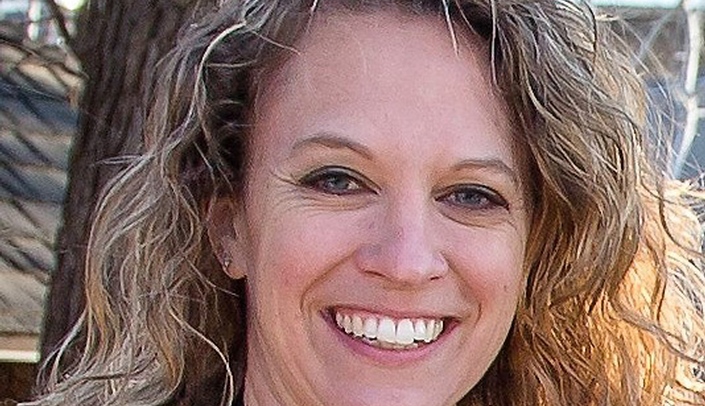Adrianne Prokupek-Pickett, Ph.D., was among the first cohort of students to go through the INBRE Scholars program in 2002.
Today, she is an associate professor of biology at Nebraska Wesleyan University, where she teaches an introductory class to biology, biological inquiry, biostatistics and cell biology and genetics.
And since last August Dr. Prokupek-Pickett is the newest member of the INBRE Steering Committee, a role that brings her full circle in the program and one she is proud to be a part of.
"I was so excited when I got invited to be on the steering committee because it allows me to do what I really enjoy and that is helping students engage in research," Dr. Prokupek-Pickett said.
In this role, Dr. Prokupek-Pickett said she will help with the journal club, mentor current INBRE Scholars and recruit new students into the program.
Currently, she mentors six Nebraska Wesleyan students in the program.
The best part about the INBRE program, Dr. Prokupek-Pickett said, is that it opens doors for more students to do hands-on research opportunities.
"We don’t have the same amount of opportunities for research as larger research universities do, so this is one more way we can meet the needs of our students interested in scientific research," she said.
In the year leading up to her appointment to the steering committee, Dr. Prokupek-Pickett spent a year on sabbatical pursing her own research interests.
One of the projects focused on corn snake muscle gene expression, which she worked on with Gary Gerald, Ph.D., an associate professor of biology at Nebraska Wesleyan.
The project, which is supported with INBRE funding, explored the changes in expression levels of the muscle genes as the snakes go through different muscle motions.
Dr. Prokupek-Pickett also spent time doing research on reproductive physiology and hormone levels in female elephants at the Henry Doorly Zoo with Kari Morfeld, Ph.D., an endocrinologist researcher.
The project looked at how reproductive and stress related hormones are affected by changes in the elephant’s environment, including relocation, habitat and social structure.
"Elephants in captivity are not reproducing and understanding how such changes are impacting the elephant on a physiological level can provide valuable insight into this problem," Dr. Prokupek-Pickett said.
"The research is ongoing and I’ve maintained ties to both projects," she said.
Three facts you may not know about Dr. Prokupek-Pickett:
- I’ve been coaching soccer and am heavily involved in sports youth program in our town;
- I like skiing; and
- I like decorating cakes.
